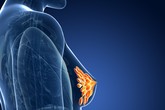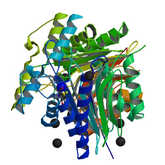- Home
-
Generics
News
- FDA approves generic teriparatide and levetiracetam
- US generics launch and approval for Dr Reddy’s and Lupin
- Five Chinese companies join UN’s MPP for Covid-19 medicines
- South Korean companies to make generic Bridion and COVID-19 drugs
Research
- Japan’s drug shortage crisis: challenges and policy solutions
- Saudi FDA drug approvals and GMP inspections: trend analysis
- Generic medications in the Lebanese community: understanding and public perception
- Community pharmacists’ understanding of generic and biosimilar drugs: Lebanon case study
-
Biosimilars
News
- FDA approves third interchangeable ranibizumab biosimilar Nufymco
- FDA approves Poherdy (first interchangeable pertuzumab) and Armlupeg (pegfilgrastim) biosimilars
- EMA recommends approval for insulin glargine biosimilar Ondibta and denosumab biosimilar Osqay
- FDA approves denosumab biosimilars Osvyrti and Jubereq, Boncresa and Oziltus
- MORE EDITORIAL SECTIONS
- Search






















